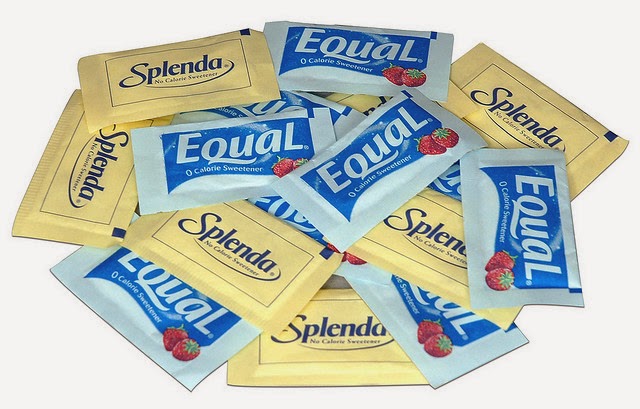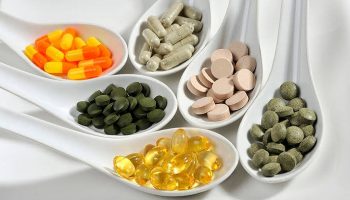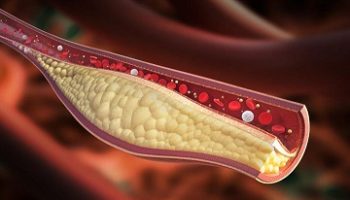ARTIFiAL SWEETNERS: THE SAFE SUGARS
As a Nutritionist/Dietitian, we are faced with diabetics virtually everyday. Now one of our major points in counselling is the advocacy of the use of ARTIFICIAL SWEETENERS as worthy substitutes for regular sugars. Yes, we have our major reasons but as you are about to find out it could have serious adverse effects on health. Dive In!
What are they?
Artificial sweeteners are synthetic sugar substitutes but may be derived from naturally occurring substances, including herbs or sugar itself. They are anywhere from 30 to 8,000 times sweeter than sugar and as a result, they have much fewer calories than foods made with table sugar (sucrose). Each gram of refined table sugar contains 4 calories. Many sugar substitutes have zero calories per gram.
Artificial sweeteners do not affect blood sugar levels, but some foods containing artificial sweeteners can still affect blood sugar because of other carbohydrates or proteins in these foods. In other words, while foods that contain artificial sweeteners may be sugar-free, they may not be carbohydrate-free.
As of 2008, more than 6,000 products, consumed by over 100 million worldwide, contain artificial sweeteners especially aspartame. They include the following:
*Carbonated softdrinks
*Chewable vitamins
*Sugar-free cough drops
*Tabletop sweeteners
*Yogurt
Uses for Artificial Sweeteners
Artificial sweeteners are attractive alternatives to sugar because they add virtually no calories to your diet. In addition, you need only a fraction compared with the amount of sugar you would normally use for sweetness.
Possible Health Benefits of Artificial Sweeteners
One benefit of artificial sweeteners is that they don’t contribute to tooth decay and cavities. They may also help with the following:
1.) Weight control: One of the most appealing aspects of artificial sweeteners is that they are non-nutritive — they have virtually no calories. In contrast, each gram of regular table sugar contains 4 calories. A teaspoon of sugar is about 4 grams. For perspective, consider that one 12-ounce can of a sweetened cola contains 8 teaspoons of added sugar, or about 130 calories. If you’re trying to lose weight or prevent weight gain, products sweetened with artificial sweeteners rather than with higher calorie table sugar may be an attractive option. On the other hand, some research has suggested that consuming artificial sweeteners may be associated with increased weight, but the cause is not yet known.
2.) Diabetes: Artificial sweeteners may be a good alternative to sugar if you have diabetes. Unlike sugar, artificial sweeteners generally don’t raise blood sugar levels because they are not carbohydrates. But because of concerns about how sugar substitutes are labeled and categorized, always check with your doctor or dietitian about using any sugar substitutes if you have diabetes.
Possible Health Concerns with Artificial Sweeteners:
1.) The human brain responds to sweetness with signals to eat more. By providing a sweet taste without any calories, however, artificial sweeteners cause us to crave more sweet foods and drinks, which can add up to excess calories.
2.) Artificial sweeteners have been the subject of intense scrutiny for decades. Critics of artificial sweeteners say that they cause a variety of health problems, including cancer. That’s largely because of studies dating to the 1970s that linked saccharin to bladder cancer in laboratory rats. Because of those studies, saccharin once carried a warning label that it may be hazardous to your health.
But according to the National Cancer Institute and other health agencies, there’s no sound scientific evidence that any of the artificial sweeteners approved for use cause cancer or other serious health problems. And numerous research studies confirm that artificial sweeteners are generally safe in limited quantities, even for pregnant women. As a result of the newer studies, the warning label for saccharin was dropped.
Artificial sweeteners are regulated by the Food and Drug Administration (FDA) as food additives. They must be reviewed and approved by the FDA before being made available for sale. In some cases, the FDA declares a substance “generally recognized as safe” (GRAS). These GRAS substances, including highly refined stevia preparations, are deemed by qualified professionals based on scientific data as being safe for their intended use, or they have such a lengthy history of common use in food that they’re considered generally safe and don’t require FDA approval before sale.
3.) The FDA has also established an acceptable daily intake (ADI) for each artificial sweetener. This is the maximum amount considered safe to consume each day over the course of your lifetime. ADIs are intended to be about 100 times less than the smallest amount that might cause health concerns.
4.) Human reports to FDA, too, have associated artificial sweeteners to minor adverse reactions and life-threatening conditions that include:
A.) Migraines
B.) Change in vision
C.) Nausea and vomiting
D.) Insomnia / sleep problems
E.) Abdominal and joint pains
F.) Change in heart rate
G.) Depression
H.) Memory loss
I.) Seizure
J.) Brain cancer
Knowledge has been ascribed to power, so now you know!. The most important thing is to know your body and know what applies to it. Also never take artificial sweeteners especially if you are diabetic unless specifically prescribed by tour dietitian. Nice Weekend!
previous article
SMOOTHEN THE BUMPY RIDE
next article
SHAVING CORRECTLY
The author Prince
Hi, I’m Prince.. a registered Dietitian, an avid reader and a passionate writer. I hope you enjoy my articles as much as I enjoy writing them






